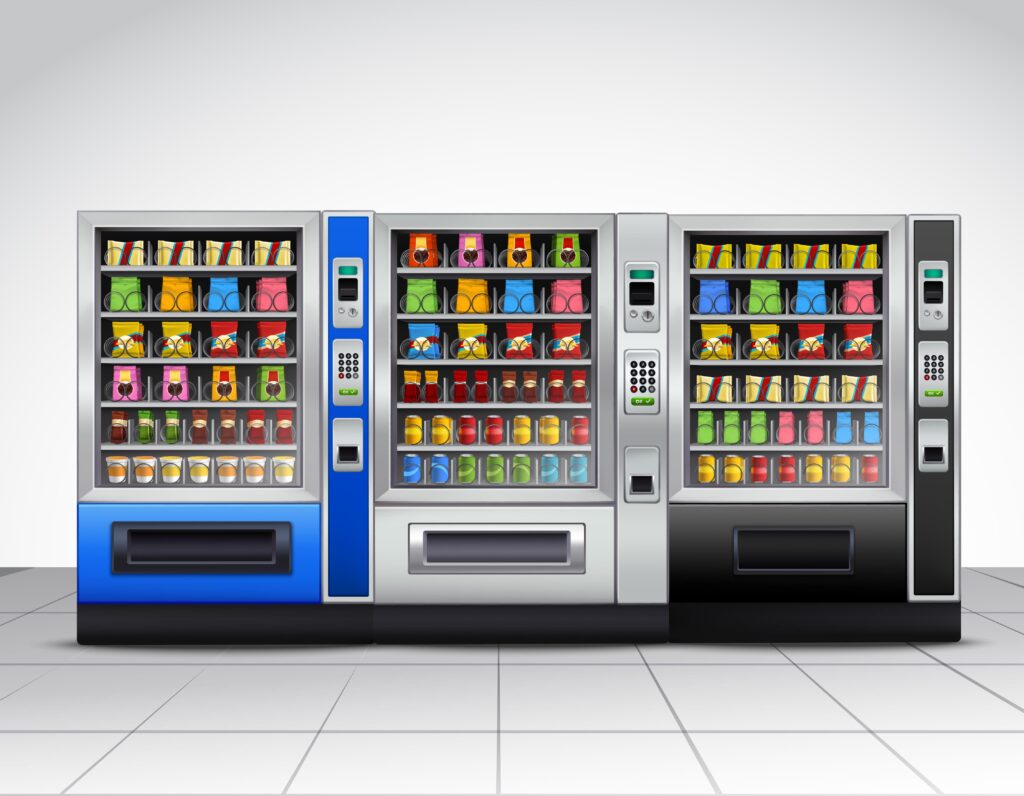Business Planning & Strategy, Financial Models
How Much Does a Vending Machine Business Owner Make?
A vending machine business is one of the most capital-efficient ways to generate recurring, semi-passive income. With low overhead, minimal staffing needs, and scalable unit economics, successful operators can build highly profitable micro-retail portfolios. Yet actual income varies widely depending on location quality, product mix, and route efficiency. This analysis breaks down exactly how much vending machine owners make and what determines their earnings.
Average Revenue per Machine
The average vending machine generates between 150 and 250 USD per week, depending on its placement and category. This translates to 7,800 to 13,000 USD in annual revenue per machine. However, machines placed in high-traffic venues such as airports, universities, hospitals, and large offices can generate 60,000 to 90,000 USD per year.
| Machine Type | Location | Annual Revenue (USD) |
|---|---|---|
| Snack and Drink Combo | Mall or Train Station | 50,000 to 70,000 |
| Beverage-Only (High Footfall) | University or Office Building | 30,000 to 45,000 |
| Snack-Only (Low Traffic) | Small Gym or Apartment Complex | 10,000 to 20,000 |
Typical Operating Costs
Operating expenses include cost of goods sold, location fees or revenue share, restocking labor, and maintenance. These costs are fairly consistent per unit, resulting in gross margins of 45 to 60 percent, depending on pricing and sourcing discipline.
| Cost Category | Annual Range per Machine (USD) |
|---|---|
| Cost of Goods Sold (COGS) | 45% to 55% of revenue |
| Rent or Revenue Share | 6,000 to 10,000 |
| Restocking and Logistics | 5,000 to 7,000 |
| Maintenance and Software Fees | 1,200 to 2,000 |
Net Profit: What Owners Actually Make
The net income per machine ranges from 4,000 to 20,000 USD annually, with the wide spread reflecting differences in location quality, COGS management, and restocking efficiency. Operators with 10 well-placed machines can reasonably earn 50,000 to 120,000 USD per year. Operators with 50+ machines and optimized routing can exceed 250,000 USD annually in profit with minimal headcount.
| Scenario | # of Machines | Net Income (USD/year) | EBITDA Margin |
|---|---|---|---|
| Side Hustle (Low Traffic) | 5 | 10,000 to 20,000 | 10% to 20% |
| Professional Operator | 15 | 75,000 to 150,000 | 20% to 30% |
| Multi-Route Business | 50+ | 250,000 to 500,000 | 25% to 35% |
Factors That Impact How Much You Make
Location Quality: A machine in a grocery store or metro station can earn 5 to 10 times more than one in a small office or apartment lobby.
SKU Optimization: High-margin products (e.g. bottled water, protein snacks, premium beverages) improve profit per transaction.
COGS Control: Purchasing in bulk or sourcing directly from wholesalers materially improves margins.
Restocking Efficiency: A route that covers 10 machines/day is far more profitable than scattered placements.
Downtime and Stockouts: Every hour a machine is offline or empty costs revenue. Remote monitoring tools are essential.
So How Much Do Vending Machine Owners Really Make?
A serious vending machine owner operating 15 to 20 machines in high-footfall locations can expect to earn 80,000 to 150,000 USD annually, with EBITDA margins of 20 to 35 percent. Scaling further, through efficient routing, telemetry systems, and disciplined reinvestment, can turn a vending business into a six-figure passive income portfolio. In this model, success is not about how many machines you own but how well you operate them.

To effectively plan and manage a vending business, use a Vending Machine Financial Model from SHEETS.MARKET.
Looing for insights on an Automated Kiosk business instead? Here is our article!



